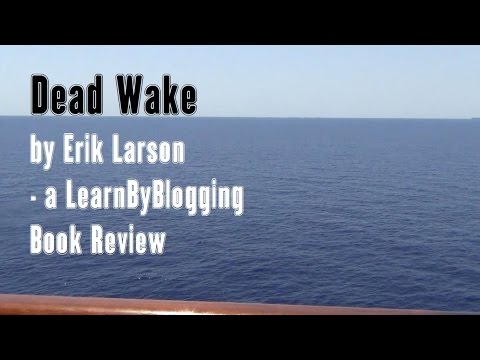This book is all about the fastest cruise ship Lusitania between New York City and Britain’s Liverpool City back in the early 20th century in the middle of World War I. Titanic sunk a few years earlier and as a result more safety features like enough Life-saver jackets and Boats were put in place. It’s the pride of the Britain to be able travel as fast speed. At that time, the German submarines or U-boats started to terrorize the “allies” with their strategy of torpedoing most of the British boats: military OR civilian.
The stories were developed along three major tracks: the key people (Captain Turner and other memorable passengers) of the ship, the captain of the U-20 u-boat and around the development of U-boats, and Room 40, the British’s secret agency in tracking and deciphering of the German U-boat communications, and then US President Woodraw Wilson, his quest for his new love after the death of the First Lady.
Of course, at the end Lusitania was sunk by U-20 within the some small window of opportunity – call it bad luck or fate. This led to US’s joining the “Allies” in battling German and brought the war to the end.
What struck me are the following:
– Why German military was so careless in getting on the “bad” side of US in the conflict. The behavior seems to anger the rest of the world. I simply can’t figure out the motivation or what the conflicts between Britain and German were all about to have such a deep hatred toward one another in both World Wars.
– Is it really a conspiracy by Britain to make Lusitania the fall guy to get US on their side? There is some truth to it. I wouldn’t rule it out.
– No machines or ships are invincible. There is always some weakness of the design that could doom the entire ship without just a small injury, in this case, just one torpedo with 60% of making it out of the U-boat and smaller % of hitting the target, much less hitting the right spot on the boat.
– Reading this book during cruise trip makes the cruise trip a bit edgy. Maybe not a good idea. But I was pleasantly surprised the amenity in Lusitania was not much different from today’s cruise ship after 100 years, except for the better ship engine and cheaper tickets. Of course, today’s cruise is much safer than those days.
– One thing I learned that one should never take any emergency situation for granted. Always take every emergency situation seriously and follow all the necessary procedure and precaution. This is why we have emergency drill on the first day of the cruise.
– Woodrow Wilson’s prudence in participating in World War I was simply very different than what US would do nowadays. Perhaps, being neutral for so long may have prolonged the war and suffering longer than necessary.
– Woodrow Wilson was unusually lonely on the top without his wife. His pursuit of his new love seemed to bring out the human and vulnerable side of him, which is understandable.
– Winston Church had an active role in this book too. I didn’t know he was involved in both World War. Maybe that’s what makes him so tough.
This is a very good non-fiction book that reads like a novel. Characters were well developed and well researched which is difficult after nearly a century. If you’re interested in the World War I conflict and sea battles between Britain and Germany and US’s involvement, you will like this book and how the author position Lusitania incident to be a critical turning point. It kept me awake one night during my cruise trip.

